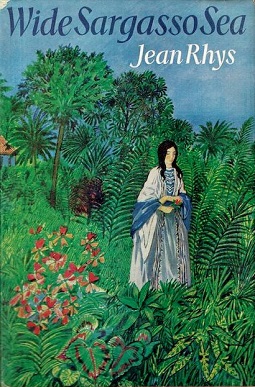Hi, my name is Ruoying. I am doing my three-month placement at GWL. This blog series focuses on Chinese Mandarin fanfiction creation, whose authors are overwhelming women. Fanfiction is unauthorised fan creation based on existing works or celebrities. As a fanfiction creator myself, I’m fully aware of the importance of fanfiction informing communities and promoting women writing. Therefore, I came up with the idea of doing some interviews with fanfiction writers and discussing what fanfiction bring them to their lives and how does fanfiction make a difference. This blog series consists of an introduction and a general report on the result of the interviews. Thank you for reading my blog series on fanfiction and hope you will enjoy it.
Fanfiction and Women Writing
Kristina Busse, professor in the Philosophy department at the University of South Alabama, wrote in her research: “fanfiction, and slash in particular, allows fans to reimagine the source material to not only negotiate their own identities and sexualities but also do so within a community of like-minded people.” (1) In 2019, Archive of Our Own (AO3), a non-profit and non-commercial online archive for fanfiction whose name originated from Virginia Woolf’s “A Room of One’s Own”, received the Hugo Award for Best Related Work representing its creators, volunteers, writers, and readers. At the ceremony, co-founder Naomi Novik said: “Volunteers and millions of users all of whom have come together and built this thriving home for fandom … on the principle that we needed a place of our own that was not out to exploit its users but to serve them … all our contribution would mean nothing without the work of the fan creators who share their work freely with other fans and the fans who read their stories and enjoy their art and comment and share bookmarks and give kudos to encourage them and nourish the community in their turn.” (2) Creators write down their happy endings for tragedies, dig into characters’ hidden sides, fulfil their dreams with their pens and share their creations with fellow fans. Fanfiction is not only a form of transformative creation based on the original work; it is also about creating a space for fans and forming new connections among people with similar interests.

In contemporary fan creation, it has been a community that is overwhelmingly consisting of women. In 2007, Busse coined the term “queer female space.” “This community of primarily female readers and writers was ultimately queer, not so much because the stories featured men having sex with men (and sometimes women with women), but because the entire space was built on an aortic exchange of ideas among and between women. … the very act of creating and consuming erotic fantasies for, by, and with other women created a queer space.” (3) In research about Harry Potter fanfiction published on AO3, Jennifer Duggan found that out of 2000 works, only authors of 265 works identify their gender, out of whom 50.39% refer themselves as female and 74.02% use the pronoun she. (4) As AO3 does not publish the information of their users’ and Duggan gathered data from her subjective judgement through reading these works, this research’s validity is under question. But even with limited data, women form the majority of fanfiction creators.
History and Contemporary Fanfiction
Despite its new emergence and deep connection with the internet, fanfiction is by no means a new terminology. Many literary masterpieces are based on folktales; great authors also have written about similar topics from legends, such as Christopher Marlowe’s Doctor Faustus in 1604, Johann Wolfgang von Goethe’s Faust in 1832, and Thomas Mann’s 1947 Doktor Faustus. There are also famous works that are based on relatively recent publications, including Shakespeare’s famous Romeo and Juliette. In the modern literary world, many “fan” novels were published, including those related to Sherlock Holmes by Conan Doyle and Alice’s Adventure in Wonderland by Lewis Carroll. One of China’s four great classic novels, Romance of the Three Kingdoms, is a 14th-century secondary creation about a history monograph that focused on the three-kingdom period during the 2nd to 3rd century. These fictions present writers’ ideas and interpretations of the original work. For example, Henry Fielding wrote Shamela to attack Samuel Richardson’s puritanical tone in Pamela. (5) In 1966, during the second wave of the feminist movement, Jean Rhys published her work Wide Sargasso Sea based on Charlotte Bronte’s Jane Eyre to explore the past of “the madwoman Bertha in the attic”. She renamed Bertha Antoinette, a Creole heiress who lived in Jamaica, told the story of her childhood, explored her cultural identity, and questioned why she was driven crazy by Mr Rochester.

In the contemporary world, with the accessibility provided by the internet, fanfiction thrives and forms a huge community. The internet has also lowered the threshold to writing: every fan can write and share their stories, regardless of their writing skills and there are no editors judging whether it can be published or not. Writers receive instant feedback, and there’s hardly any hierarchy between reader and writer. “In other words, the process of writing, disseminating and reading fanfiction many not ultimately be different from other fiction, but all of these processes are openly visible online.” (6) By 2020, more than 7 million fanworks have been published on AO3 since 2009 and this website alone hit 3 million registered users by November 2020. There are many other active fanfiction sites, including fanfiction.net, Tumbler (which has suffered a sharp drop in users when it banned erotic content), etc. (7) Many non-English speaking countries also have their fanfiction applications or websites. Famous works, for example, Harry Potter, Star Wars, Marvel films, etc., have an enormous amount of fan works. By the beginning of 2021, there have been more than 270,000 works under Harry Potter fandom on AO3.
Barriers in Fanfiction
Copyright and authors’ attitude have always been issues with transformative creation. Most of the fanfiction works, due to copyright issues, are non-profit and non-commercial. But some works get published. E. L. James’ novel Fifty Shades of Grey, for instance, is originally a fanfiction of the Twilight Saga. It was first published on a fanfiction website under the name Master of the Universe and was later rewritten into an original piece. The original author Stephenie Meyer sent her comment to the work as follows: “I’ve heard about it; I haven’t gotten into it that much. Good on her — she’s doing well. That’s great! … [James] had a story in her, and so it would’ve come out in some other way.” (8) Like Meyer, many other authors are open or have changed their mind with fanfiction. When asked on Twitter whether he supported fanfiction, Neil Gaiman answered: “I won the Hugo Award for a piece of Sherlock Holmes/H.P. Lovecraft fanfiction, so I’m in favour.” But not all the original work authors welcome fanfiction. Anne Rice made it clear in 2000 that fanfiction based on her original characters is unacceptable. Fanfiction.net also has a list of authors whose fandoms are prohibited from their websites. (9) Apart from copyright, ethical issues are also hotly discussed in fanfiction creation. It is often questioned whether it is moral to write two characters or two celebrities having sex or committing violent crimes. J.K. Rowling, despite her current relatively open attitude to fanfiction, has complaint more than once about the erotic content in the Harry Potter fandom. She’s confused why there are so many fanfictions about Harry Potter/Draco Malfoy while to her Draco Malfoy has nothing positive. AO3 has also been criticized for offering tags such as “underage,” “violent action,” etc.

When it comes to real person slash (RPS), which tells fan stories about real people, there are concerns about celebrities’ reputation, particularly when a relatively large amount of RPS contains erotic content. Busse argues that these stories are written out of fans’, particularly female fans’, deep empathy and sympathy for the stars. They “construct the celebrity … as an object of desire, as someone with whom to identify, or as a re-creation of the celebrity’s supposed real self” and these stories allows them to explore their desires, identities, and sexualities. (10) Fans imagine what happens out of the camera, “rehumanises the celebrities by inventing backstories and inner lives.” (11) These stories based on real stars “create a social space of communication and interaction that is about the celebrities and the stories, as well as the women writing them.” (12) Some celebrities are fine with fans’ imaginations; some may even admit publicly that they have read fanfiction online. However, some find it insulting. Celebrities’ fans, on the other hand, may regard these works as defamation to their beloved stars. In 2020, fans of a Chinese celebrity Xiao Zhan believed that a fanfiction published on AO3 defamed Xiao Zhan, which contains pornographic depiction and feminisation of the actor. Fans reported the website to authorities and later AO3 was banned in mainland China. This incident caused a boycott online towards the actor and it is still underway. According to Busse, “popslashers consciously declare their writing to be fictional and separate their stories from rumours.” (13) Most fan fiction writers and readers are consciously aware that these stories are unreal and only exist textually.
Mandarin Fanfiction Community
Let’s return to the topic of this blog series, mandarin fanfiction creation. As a fanfiction writer, I do find most of my friends and readers are women. The mandarin fanfiction community I belong to, with its features, is different from other fanfiction communities, and the writing environment is far from desirable. Censorship exists and with AO3 being banned in mainland China, where I live, there’s no platform to publish fanfiction properly without any restriction. When I want to post a story with minor erotic or violent content, I must post it in the form of an inverse picture so that my readers can read the whole story. Otherwise, the platform will delete it.
To avoid my bubble and to have a better view, I interviewed 15 mandarin fanfiction writers from the social platform, who are all women and most of their works are written in mandarin. When I post the invitation on my Weibo, a Chinese social media like Twitter, I received more than 20 replies and 40 reposts helping me to find interviewees within several hours when there is even an 8-hour time difference between Scotland and China. Due to the time and content limit, I had to turn down some of the replies. I asked them questions including why they started writing fanfiction, what does fanfiction bring them, what role does the fanfiction community play in their creation and their difficulties in writing. It is far from serious research and can hardly represent the whole picture of mandarin fanfiction, but I hope that it can show an aspect of female writing and its significance in self-expression.
Most of my interviewees, including myself, started reading fanfiction in their teenage years, from elementary school to junior high school. Our fandoms range from Chinese history, Japanese anime, French literature, Hungarian Musicals, Indian TV series to Marvel movies. Some of them have written more than 1,000,000 words since their teenage days and some may start in the recent two years. Fanfiction creates a “parallel universe” where the unsatisfactory endings are re-written. It provides inner emotional sustenance, helps to identify ourselves mentally and sexually, and forms an important social network. One of my interviewees says: “There were two periods in my life where almost all valuable and quality social interactions were only obtained through fandom.” (Salmon) In 1929, Virginia Woolf published “A Room of One’s Own”; in the contemporary world, fanfiction creates a space of our own.
The following three blogs will report about their writing process, major difficulties, and what does fanfiction bring them. If you are interested in fanfiction, please keep up with my following blog on the topic.
Bibliography
(1) Busse, K. (2017) Framing Fanfiction: Literary and Social Practice in Fan Fiction Communities, University of Iowa Press pp.13.
(2) https://www.youtube.com/watch?v=tYtLH4f0qrg&t=5719 1:33:25-1:35:04
(3) Busse, pp.13.
(4) Duggan, J. (2020) “Who writes Harry Potter fan fiction? Passionate detachment, “zooming out,” and fan fiction paratexts on AO3” Transformative Works and Cultures, vol.34
(6) Busse, pp.10.
(7) https://www.transformativeworks.org/the-archive-of-our-own-reaches-seven-million-fanworks/
(8) http://www.mtv.com/news/1685954/fifty-shades-of-grey-stephenie-meyer/
(9) https://august-t.medium.com/a-deep-dive-into-the-anne-rice-fanfiction-debacle-d7932b879bda
(10) Busse, pp.43.
(11) Busse, pp.44.
(12) Cited in Busse, pp.43.
(13) Busse, p.44.
Pictures:
(1)https://archiveofourown.org/
(2)https://en.wikipedia.org/wiki/File:JeanRhys_WideSargassoSea.jpg#filelinks

Comments are closed.